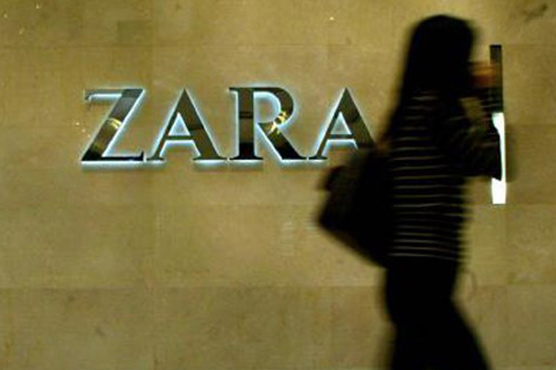Zara owner Inditex posts slower 2017 profit rise on warm autumn

The Spanish company's sales, meanwhile, rose 9 percent to 25.3 billion euros.
CORUNNA (AFP) - Spain s retail giant Inditex, which owns Zara, said Wednesday its 2017 net profit jumped seven percent, a slower growth than previous years due in part to a warm autumn, as it tackles an increase in online shopping.
Speaking to reporters in Corunna in northwestern Spain, CEO Pablo Isla said the results were "satisfying" but impacted by "huge volatility in currencies in different countries and an unusually warm autumn."
Inditex, which owns eight brands including Zara, Bershka and Massimo Dutti, far outperformed its Swedish arch-rival H&M, which posted 1.6 billion euros in profits for 2017.
Net profit rose to 3.37 billion euros ($4.2 billion), but while slightly above analyst expectations, it was a slower increase than in 2015 and 2016.
A mild autumn in Europe, where the group makes 60 percent of its turnover, slowed the start of its autumn-winter collection.
The Spanish company s sales, meanwhile, rose 9 percent to 25.3 billion euros.
But in the fourth quarter, its gross margin was hit by a decision "to delay the arrival of the new spring-summer collections" in Zara, Bankinter analysts said in a note.
This decision, made to harmonise collections in its stores and online, meant it had "less items on sale at full price," they added.
Net profits would even have fallen 1.5 percent if the group hadn t made 257 million euros from the sale of 15 stores in Spain and Portugal, Bankinter said.
While they opened on a sharp drop, shares in Inditex in Madrid went back into positive territory on Wednesday afternoon, posting a gain of more than four percent in late trading.
Amazon competition
For a year now, shares have lost more than 20 percent of their value, and in January, Inditex lost its place as Spain s biggest group by market capitalisation to Banco Santander.
"The group has started having problems to clear its stocks, which never happened before," Sergio Avila Luengo, an analyst at IG Markets, told AFP.
He said this was likely due to competition from "e-commerce," including US online giant Amazon, which has moved into the textiles sector.
Inditex, though, said it was satisfied with its online commerce, which started in 2010 in Spain for Zara and has since been extended to 49 countries out of 96 where the group is present.
Last year, turnover from internet rose 41 percent.
Online sales now represent 10 percent of the overall turnover, or 12 percent if only the countries where they are available are taken into account.
By comparison, online sales at H&M represent 12.5 percent of the total.
The group said it had invested 1.8 billion euros in 2017 "in further developing its integrated stores and online model and upgrading its technology."
This involves services like ordering items online and collecting them in-store, which in a few shops takes place in a fully automated pick-up point.
Part of the sum invested was used to expand a system of electronic chips on clothing tags which allows for a very precise inventory of sales and stocks.
Isla said this allowed for "full integration of stocks," allowing the group "to offer products we have in-store for online sales."
Asked about a potential partnership with Amazon, Isla responded the group was not contemplating any agreement other than the one in China, where Zara products are distributed via another website.
From humble beginnings, Inditex has grown to become one of the world s largest fashion retailers.
Its founder Amancio Ortega, 81, is the world s sixth richest man, according to Forbes.

